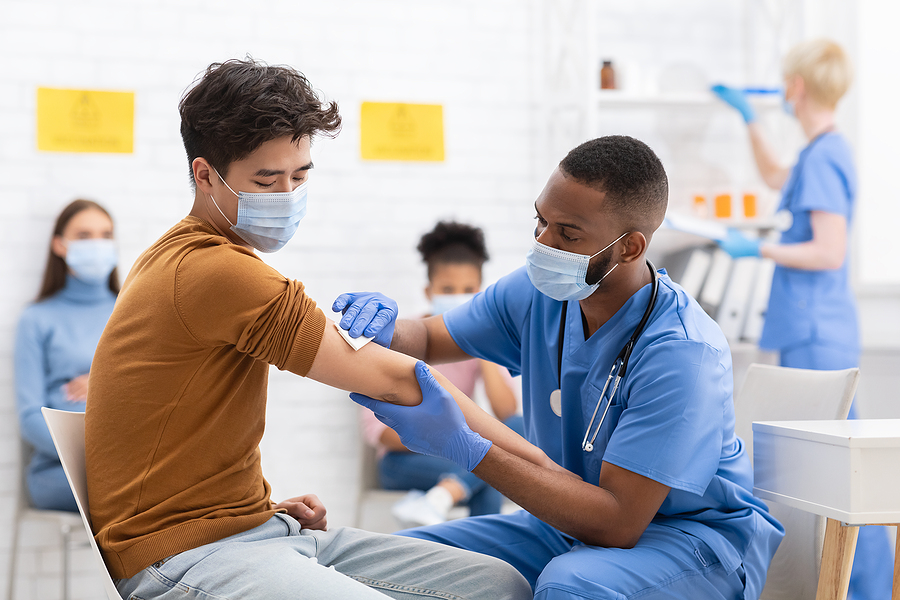While the past year was nothing to get excited about, the tide is turning now that a COVID-19 vaccine has become widely available. People began receiving vaccinations as early as December 2020, and millions of Americans have now gone through the process.
But hundreds of millions of people still need to get vaccinated from this dangerous and deadly virus. Some people are understandably concerned, and others are anxious for their spot in line. Before you get the COVID-19 vaccine, here are few things you can do to prepare.
Learn About the Vaccine Before Your Appointment
It’s always a good idea to find some reputable sources and get educated about vaccine before your get it. The U.S. Food and Drug Administration (FDA) and the Centers for Disease Control and Prevention (CDC) are both excellent places to get some facts.
You’re likely to learn that the COVID-19 vaccine is 95% effective and is also safe. It can’t give you COVID because the vaccine does not contain a live virus.
Rest and Eat Well Beforehand
A good night’s sleep and a balanced diet should already be priorities. Even so, make it a point to get plenty of rest before your first vaccine appointment so that your immune system will be working in your favor instead of against you. Also, drink plenty of water and make sure you eat a good meal if your appointment falls around a mealtime.
Be Ready to Schedule Your Second Appointment
The current vaccines that are being distributed (Pfizer and Moderna) require two shots that are spaced three or four weeks apart. It’s important that you follow this schedule so that the vaccine is as effective as possible.
If you didn’t get your second vaccine appointment when you made your first one, take your calendar to your appointment. Be ready to commit to a second date since these appointments are in high demand.
Monitor Your Potential Side Effects
After you get your shot, you’ll be asked to wait about 15 minutes before leaving to ensure you don’t have an allergic reaction. If you’ve had issues in the past with vaccinations, you may be asked to wait about 30 minutes.
Most people don’t experience side effects from these vaccines, but you should monitor for them anyway. Some possible ones include a headache, chills, body aches, and pain at the injection site. You can take acetaminophen to ease the symptoms and should contact your healthcare provider if the effects become severe.
Keep Your Vaccine Record Card
You’ll receive a vaccination card from the center that gives you the shots with the type of vaccine you received and the dates. Make sure you keep this card for your records. You’ll also want to make sure you are getting the same type of vaccine for the second shot, so bring the card with you to your second appointment. Some people may also need to show a copy of the card to satisfy future travel or work restrictions.
Continue Following the CDC’s COVID-19 Recommendations
About two weeks after the second vaccine, your chances of becoming ill with COVID-19 are significantly reduced. But you should continue to follow the CDC’s COVID-19 safety precautions, such as wearing a face mask in public and frequently washing your hands. According to the CDC, it’s possible that someone who has been vaccinated could still carry the virus and pass it along to others.
MedTrust is a South Carolina-based mobile healthcare provider that focuses on serving hospital systems throughout the Southeast. Contact us to learn more about our services or to find out how you can become a member of our team.

